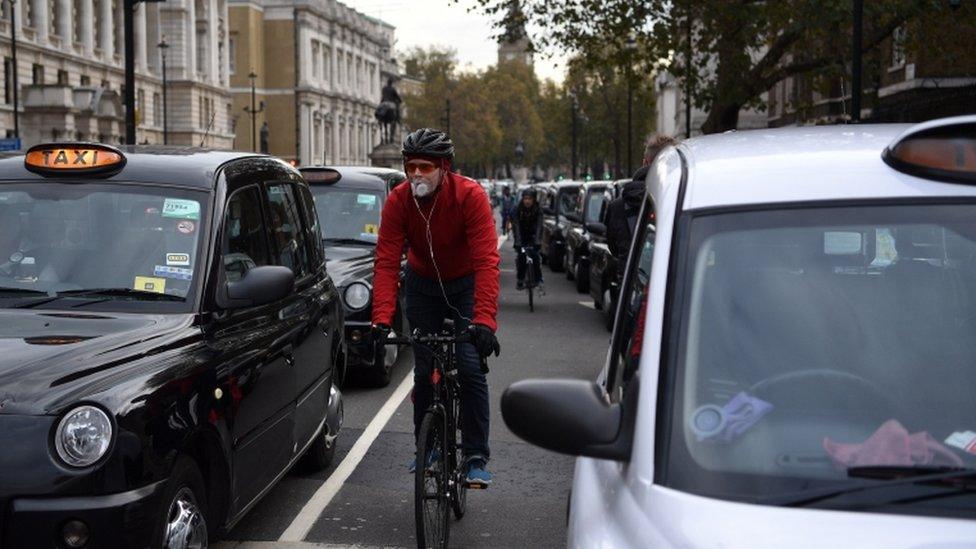Congestion Charge set to rise by 20% to £18
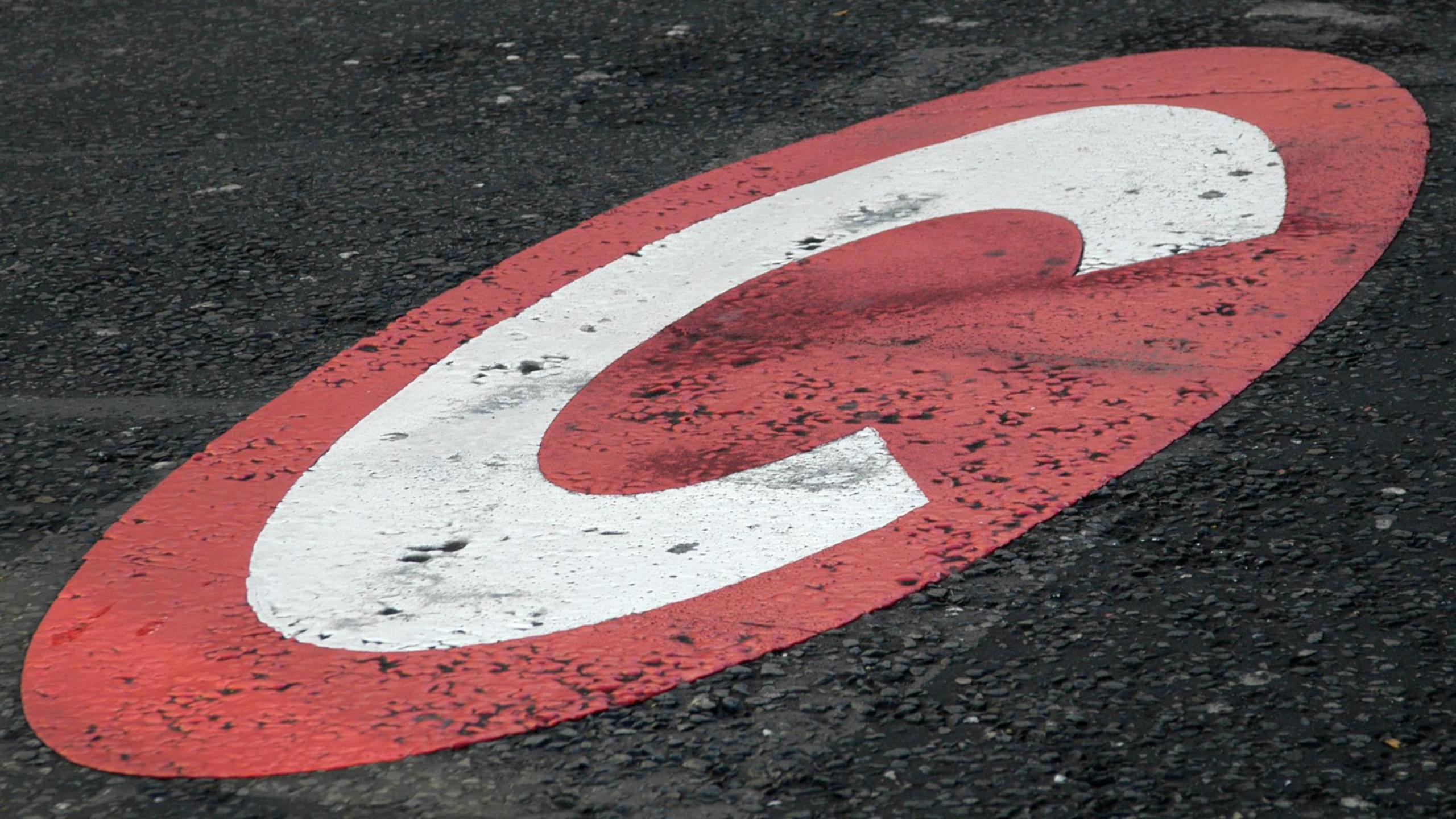
London's Congestion Charge was first introduced in February 2003
- Published
The Congestion Charge should rise by a fifth to £18, Transport for London (TfL) has proposed.
On 2 January, the daily £15 fee for drivers of vehicles in central London will increase, the first such rise since June 2020 when the charge jumped 30% from £11.50.
If the charge is not paid within 48 hours, drivers face a penalty of £180, reduced to £90 if paid within 14 days. It operates between 07:00 and 18:00 on weekdays and 12:00 and 18:00 on weekends.
Drivers of electric cars, who currently travel free in the zone, were expecting to start paying the full charge from December but will now receive a 25% discount provided they are registered for auto pay. HGVs and vans will get a 50% discount.
TfL is also proposing to raise the levy annually in line with public transport fares, which usually increase with inflation.
The Federation of Small Businesses (FSB) described the rise as "swingeing" at what it said was a time when "small firms are making extremely tough business decisions to remain competitive".
City Hall said without the changes at least 2,200 more vehicles would drive in the zone each weekday while TfL said the increase would be "effective in managing traffic and congestion in central London".
London has the most congested roads in Europe, a title it has held for four consecutive years.
Applications for new residents' discounts from petrol and diesel car owners are set to be abolished altogether in March 2027. A public consultation, external will run until 4 August.
What changes for electric vehicles?
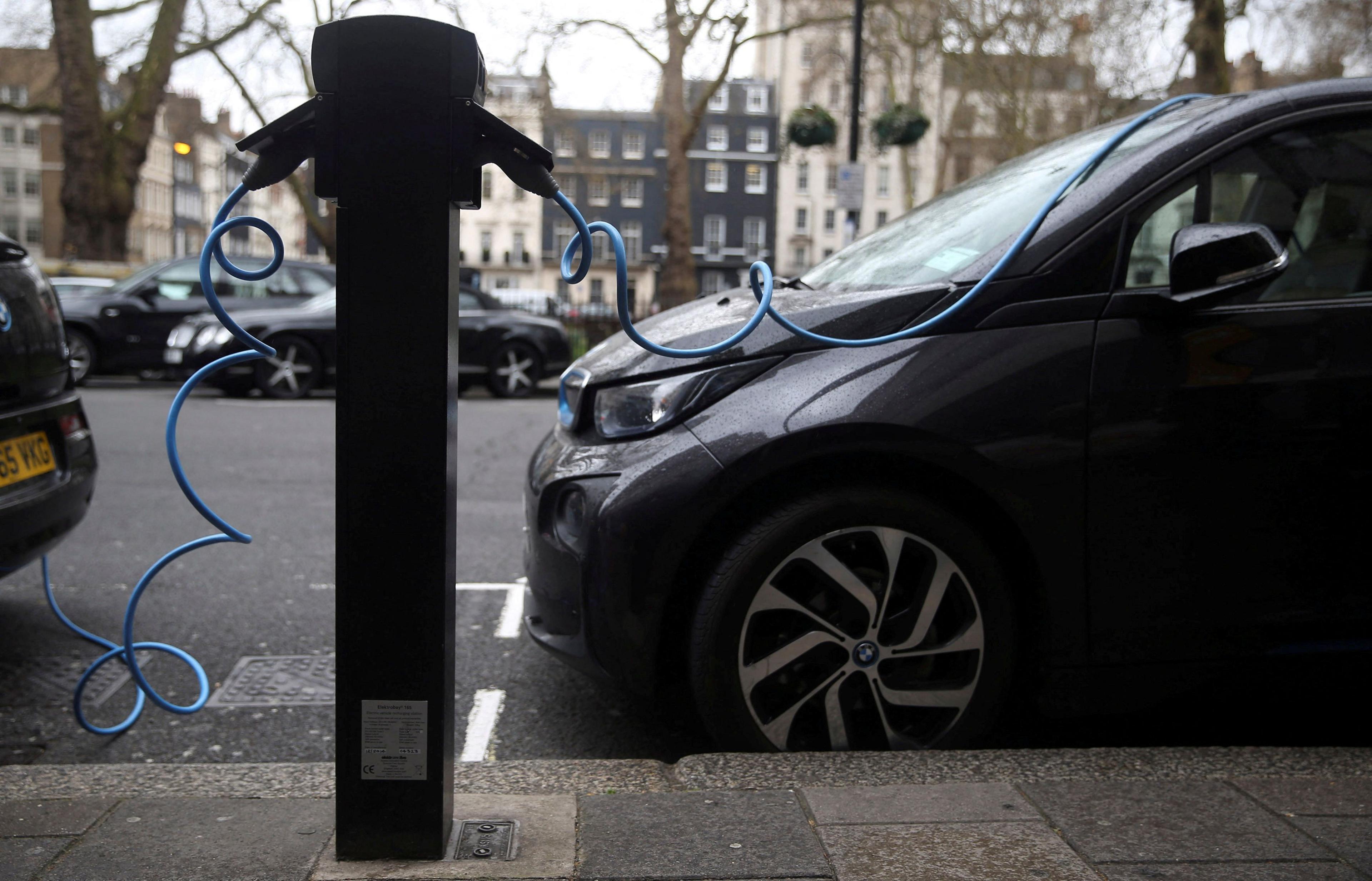
Currently, these motorists pay nothing to drive in central London.
But from January - provided they are registered for auto pay - electric car drivers will pay £13.50 a day (25% discount) while HGVs, vans, light quadricycles and heavy quadricycles will pay £9 (50% off).
In March 2030, the discounts will drop to 12.5% and 25% respectively.
TfL had previously announced plans to end the Congestion Charge exemption for electric vehicles altogether.
However, a recent report from Stonehaven Global warned that abolishing the discount for electric vehicles could "threaten to undo years of air quality gains and risk an 11% rise in nitrogen oxides across central London".
The head of UK and strategy for Clean Cities, Oliver Lord, who was among the critics of the plan to abolish the electric vehicles exemption altogether, said the latest proposals amounted to a "balanced package" and that the mayor had listened.
What about the residents' discount?
From March 2027 and for new applicants only, the residents' discount will be abolished for anyone not driving an electric vehicle.
Currently, residents driving non-electric cars receive a 90% Congestion Charge discount.
TfL says: "Those who are already registered for the discount ahead of this date will not see any changes, reflecting that they might be reliant on their current form of transport."
Is Ulez affected?
No.
Drivers of older, more polluting vehicles already pay £12.50 to travel anywhere within the Ultra Low Emission Zone (Ulez), which was expanded to cover all of London's boroughs in August 2023.
These latest changes mean if you drive one of these vehicles in central London, it will cost you £30.50 a day.
On top of this, if you use either the Silvertown or Blackwall tunnels, that will cost up to £4 each way at peak times.
What else changes?
Currently, the Congestion Charge costs £15 if paid in advance or on the day of travel or £17.50 by midnight on the third day of travel.
Under the plans, it would cost £18 if paid in advance or on the day or travel and £21 if paid by midnight on the third day of travel.
It should become easier for electric vehicle drivers to receive the discount, TfL says.
"It is proposed that it will be applied automatically from DVLA data, rather than having to separately register and prove a vehicle meets the standards."
What is the history?
On 17 February 2003, motorists had to pay a charge to drive in central London for the first time, under the mayoralty of Ken Livingstone.
It cost £5 and 57,000 had paid by the charge by the afternoon of day one. TfL said congestion reduced by 30% within the zone within the first year.
A western extension to the zone in places such as Kensington and Notting Hill, introduced in 2007, was abolished four years later.
By 2011, the cost had doubled to £10 and another £1.50 was added to the fee in 2014.
What has been the reaction?
Michael Lloyd, the FSB's London infrastructure champion, said: "Many businesses, particularly in sectors where margins are so tight, will not able to absorb these extra costs.
"Businesses will look to charge customers in the charging zone a premium for their business services, which will heighten inflationary pressures further.
"The mayor should immediately reconsider the excessive increase and make it more palatable to struggling small firms. We urge the mayor to maintain a zero charge for small van users."
Sophie O'Connell, senior policy adviser at the Green Alliance, said: "It's great to see London continuing its leadership in encouraging the switch to cleaner vehicles.
"The new measures send a clear signal: driving a polluting vehicle through central London should not be cheaper than taking public transport, making the cleaner choice the obvious one while supporting both public health and the environment."
Listen to the best of BBC Radio London on Sounds and follow BBC London on Facebook, external, X, external and Instagram, external. Send your story ideas to hello.bbclondon@bbc.co.uk, external
- Published1 July 2024
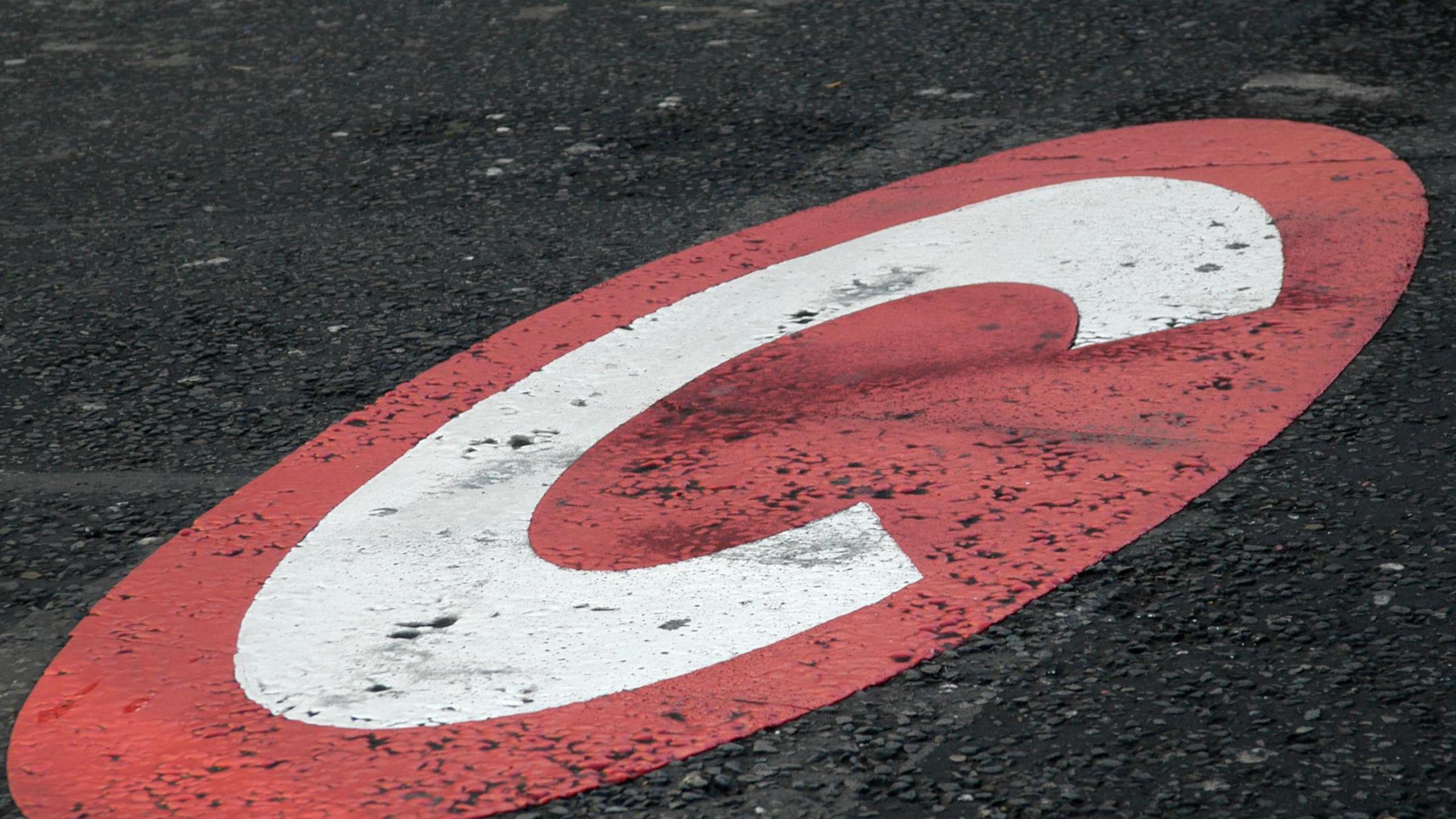
- Published28 July 2021
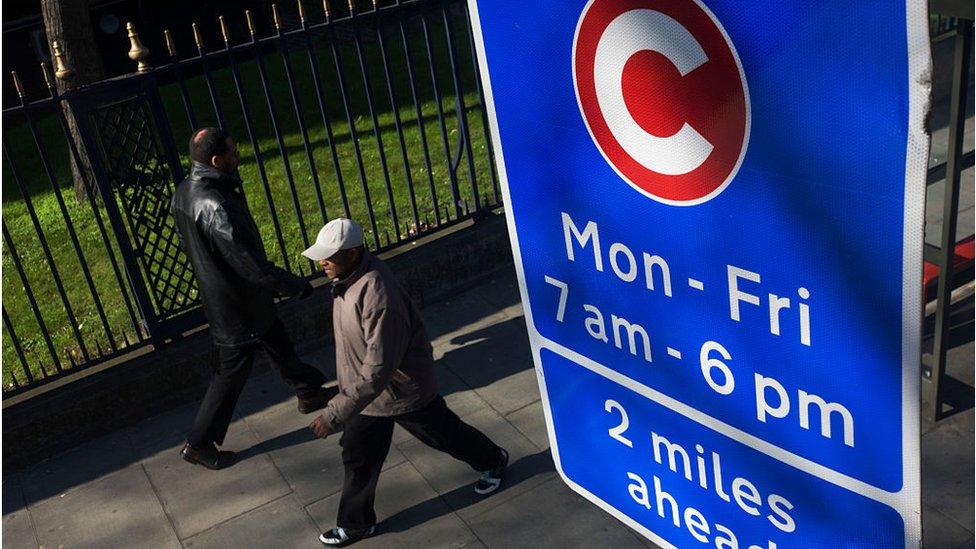
- Published22 June 2020
